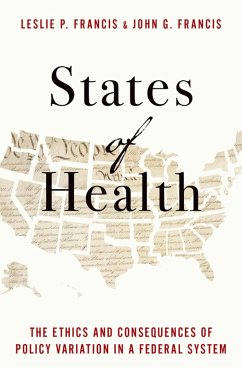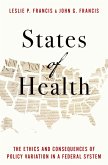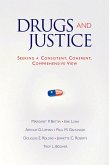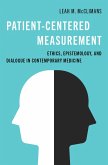Is it morally or politically acceptable to have wide differences in the quality of health care when one crosses a state line? Federalism in the United States has been defended as a political structure that enables people to coexist in a single polity despite deep disagreements about some of the most fundamental aspects of human life. This federalism of the compound republic of the United States can create space for difference and latitude for innovation, and its flexibility in levels of policy enactment can allow for fruitful state-level experimentation, especially in the areas of health and health care, which has long been celebrated. However, when federalism results in significant differences in health care availability within a single country-with abortion being the tip of the iceberg of these differences, albeit a very pointed one-it can generate enormous ethical challenges for health care providers and their patients. These challenges often engender questions of what should be considered an enduring right: Which freedoms should transcend borders?
States of Health identifies the practical relevance of federalism to people facing ethical decisions about health and health care, and it considers the theoretical justifications for permissible differences among states. It asks whether authority over important aspects of health is misaligned in the United States today, with some matters problematically left to the states while others are taken over by the federal government. Health care is a basic good, central to the ability of people to flourish. If state policies result in a landscape where residents of some states can flourish in ways that residents of other states cannot, the mutuality of a federal union might be threatened.
States of Health reminds us that there are some divisions that a nation cannot endure.
Dieser Download kann aus rechtlichen Gründen nur mit Rechnungsadresse in A, B, BG, CY, CZ, D, DK, EW, E, FIN, F, GR, HR, H, IRL, I, LT, L, LR, M, NL, PL, P, R, S, SLO, SK ausgeliefert werden.









